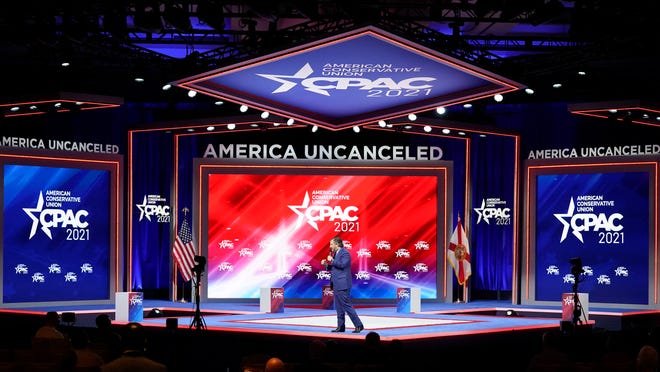
Stephanie J. Jones

Question: What do "Widespread Voter Fraud," "Reverse Discrimination," and the "War on Christmas" have in common?
Answer: None of them actually exist. They are just a few examples of a growing list of mythical constructs intended to shift attention and accountability away from the very real problems of institutional racism, sexism, homophobia and religious bigotry.
Recently, another bogus term has been added to this lexical hall of shame: “cancel culture."
The term is relatively new, but it shares the same concept and purpose as the previously-coined terms. It’s another tool used to shut down honest discussion and reflection of societal problems, avoid accountability and project fault onto others rather than address real and systemic issues that our country can and must deal with.
Counterpoint:Opinion: No limit to how far cancel culture will go
The "cancel culture" trope has gotten a lot of mileage recently after it became publicly known that the publisher and family of the late children’s author Dr. Seuss quietly decided last year to stop publishing a few of his more obscure books that contained racist images.

And as sure as day follows night – or as sure as backlash follows any attempt to confront the nation’s sordid history of racism – came the hysterical and generally foolish reactions, accompanied by cries of "CANCEL CULTURE!"
Right-wing politicians and commentators who never seem bothered by racism, only by reactions to it, practically knocked each other over scrambling to the nearest camera and grabbing their mobile phones to tell their audiences and supporters that THEY are being victimized because Dr. Seuss’ family decided not to publish a handful of books many of them had probably never heard of until last week. And, for good measure, they blamed it on President Biden, although he had absolutely nothing to do with the business decision made by a private company in collaboration with a late author’s heirs – aka the free market in action.
Screaming about censorship is an essential element of this ruse. We can’t turn on a television or look at social media without seeing, hearing and reading these politicians and commentators on the House and Senate floors, all over FOX News, and in our Twitter and Facebook feeds whining about how they’re being "silenced."
But while seemingly ridiculous on its face, this tactic – like the other false narratives – has an insidious purpose and result: to preserve, protect and defend white supremacy and privilege by trying to bully, blame and drown out those who draw attention to actual racism, sexism, religious intolerance, sexual prejudice, etc. At the same time, they attack others for speaking the truth and sanctimoniously swath themselves in the soothing cloak of victimhood ("How DARE you make it uncomfortable for me or anyone else who looks or thinks like me to say or do whatever we want, whenever we want, to whomever we want! WE’RE the real victims here!"). It’s a dangerous but highly effective tactic.

One of the reasons it works is that too many people, especially among the media, fall for it and feed into it. Even this column, I fear, may contribute to and perpetuate the problem. While we are talking about whether Dr. Seuss, and by extension, other white people, are victims of "cancel culture," we aren’t discussing the racism that is still ingrained in much of our culture and institutions.
When we focus on whether "widespread voter fraud" is occurring, we are looking away from and actually enabling the spate of voter suppression legislation across the country designed to squeeze Black, brown and low-income voters out of the political system.
When we waste time analyzing whether "reverse discrimination" is real, we ignore the persistent existence of racial inequality that should be obvious to anyone paying attention and that cannot be addressed, much less eradicated, unless we stop playing these silly games and work the real problem.
When we argue every year about whether a war is being waged against Christmas, we ignore the dangerous blurring of the line between church and state and the otherizing of anyone who doesn’t believe an increasingly cramped and hypocritical Christian orthodoxy.
This is not a new phenomenon. Our history is full of examples of people, fearful of losing their actual or perceived power fighting to hang on to a hierarchical structure they believe benefits them and that they see slipping away as our society becomes more diverse. As this country struggles to move closer to its ideals, that shrinking group of terrified people is getting more and more desperate, so they respond by getting louder and louder.
We can’t do much to alleviate this fear, but we can stop giving light and air to their false narratives that undermine and distract from the important work before us. We need to stay focused on the real issues – in this case, the continued existence of persistent, institutional racism and discrimination in America and our responsibility to recognize, address, remedy, overcome and eliminate it, as difficult and painful as that may be.
Stephanie J. Jones is president of The Call to Justice Foundation, based in Cincinnati, and is legal counsel for the NAACP’s National Voter Protection and Empowerment Program.

Source link








